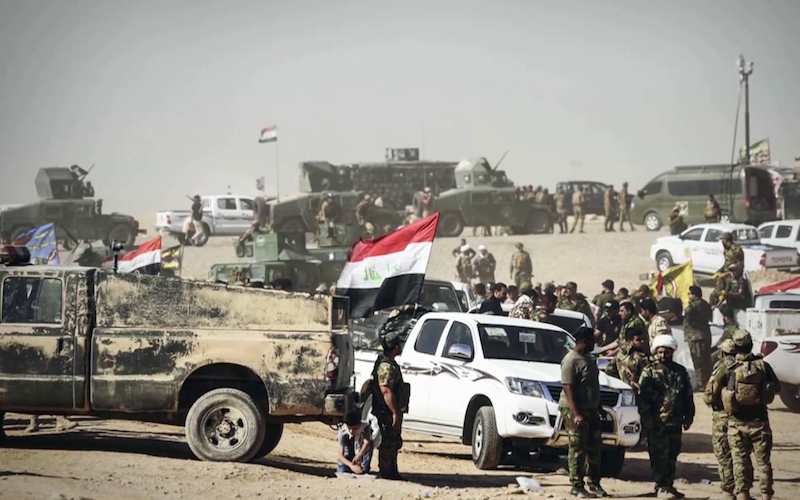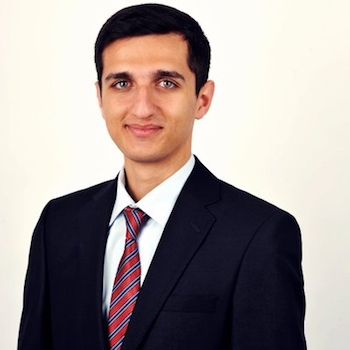
Will the Liberation of Mosul Inflame Ethnic Tensions?
On October 17th the Iraqi government officially launched a mass offensive to liberate the ISIS-held northern city of Mosul. The Iraqi army in collaboration with a coalition which includes the Kurdish Peshmerga and US military, is approaching the city step by step. Since ground operations were launched at dawn on Monday by the Iraqi army, Kurdish Peshmerga fighters, under the control of the Kurdish Regional Government (KRG), and various ethnic-based irregular militias, the advancing troops have captured 20 villages from the Islamic State. Peshmerga forces have captured part of the road connecting Irbil, the KRG capital, to Mosul.
Although the coalition forces had besieged the city two years ago, the Islamic State succeeded in mobilizing hundreds of new jihadist groups from its military bases in Syria. Even though the final battle for Mosul has not started yet, there are still some concerns about possible confrontations among the “liberators” which may erupt in the aftermath of the seizure of a captured Mosul.
The anti-ISIS coalition has been built on the basis of “my enemy’s enemy is my friend,” but what would happen if my enemy’s enemy is also my enemy?
The Iraqi Armed Forces which is supposed to play a central role in the liberation of Mosul consists of fractious of mutually mistrustful constituents—Kurdish Peshmerga, Shia militias, the mixed-sectarian bag that is the Iraqi army—in a country which could easily fall into civil war again, after ISIS’s defeat.
The PMU’s involvement in the ISIS fight has drawn significant criticism. An Amnesty International report this week accused the militias of “war crimes” and “gross human rights violations,” alleging its fighters were guilty of torturing, forcibly disappearing and executing Sunni Muslims they suspected of being ISIS sympathizers. The Shiite militias have been banned by Iraq and the U.S. from entering the city itself.
If there are not clearly articulated limits and strategic plans for each of the involved groups, no doubt that Sunni militants would attack their Shia counterparts during the final battle. Obviously, there is a lack of trust between Sunni groups and the People’s Mobilization Units (Shia militants) who symbolically remain loyal to official Baghdad, but, in fact, have been backed by Iran’s Revolutionary Guards.
The problem is that PMU insists on excluding US military advisers from the Mosul operation, as they prefer not to rely on “foreign” support. According to them, after the operation ends, the US will seek to establish a new military base in Ninevah province. Therefore, Iraq’s Popular Mobilization Units (PMU) are threatening to attack US troops that participate in the battle to liberate Mosul from the Islamic State. However, the Iraqi government hopes to smooth things over.
Iraqi Prime Minister Haider al-Abadi said his government would work on a consensus formula to convince PMU factions of the need to involve US troops in the battle and resolve the problem as soon as possible. He also hopes to persuade Washington that the PMU is a national force of the Iraqi state and should be part of a special military system to liberate Mosul.
Another problem for US military advisers in Iraq are the deteriorating relations between its two main allies – Turkey and Iraq. Most probably, relating to the pending final battle over Mosul. Turkish President Erdogan underlines the necessity of Turkish involvement in the final battle and insists that Turkey must be involved. In December of 2015, Turkey sent 1,000 soldiers and 25 tanks to the northern part of Iraq claiming that the contingent is a part of an international mission to train Iraqi soldiers. The arrival of such a large military unit has sparked a lot of concerns in Iraq. Even though the Iraqi government demanded the withdrawal of the contingent, Turkey refused to do so which, in turn, triggered worse bilateral relations.
Undoubtedly, the radical methods and statements of Ankara towards Shia militiamen may put Turkish soldiers face-to-face with PMU units which see Turkey’s military activity in Iraq as an “occupation.” It is also necessary to shed light on Turkey’s fear over Mosul’s destiny, which may fall (along with Tel-Afar) under the rule of Iraqi government – a Shia government. Therefore, President Erdogan said on Sunday that Ankara – which already has a military presence in Iraq – would act if forces from the Popular Mobilization Units abuse civilians in their fight for the town of Tal Afar. Tal Afar is inhabited by Turkmen – an ethnic group with strong cultural and historical links to Turkey.
Washington endeavors to persuade Turkey to avoid taking any military action and focus more on humanitarian issues, as well as, the refugee crisis. Moreover, Washington claims an agreement had been reached on the full withdrawal of Turkish troops from Iraq after the liberation of Mosul. Official Ankara maintains silence on that statement. In fact, Turkey aims to prove that the so-called July coup attempt did not affect the capability of the Turkish army. Also, this tendency would lead to the termination of several border lines in the Middle East which have been distorted by colonialist regimes following World War I.

